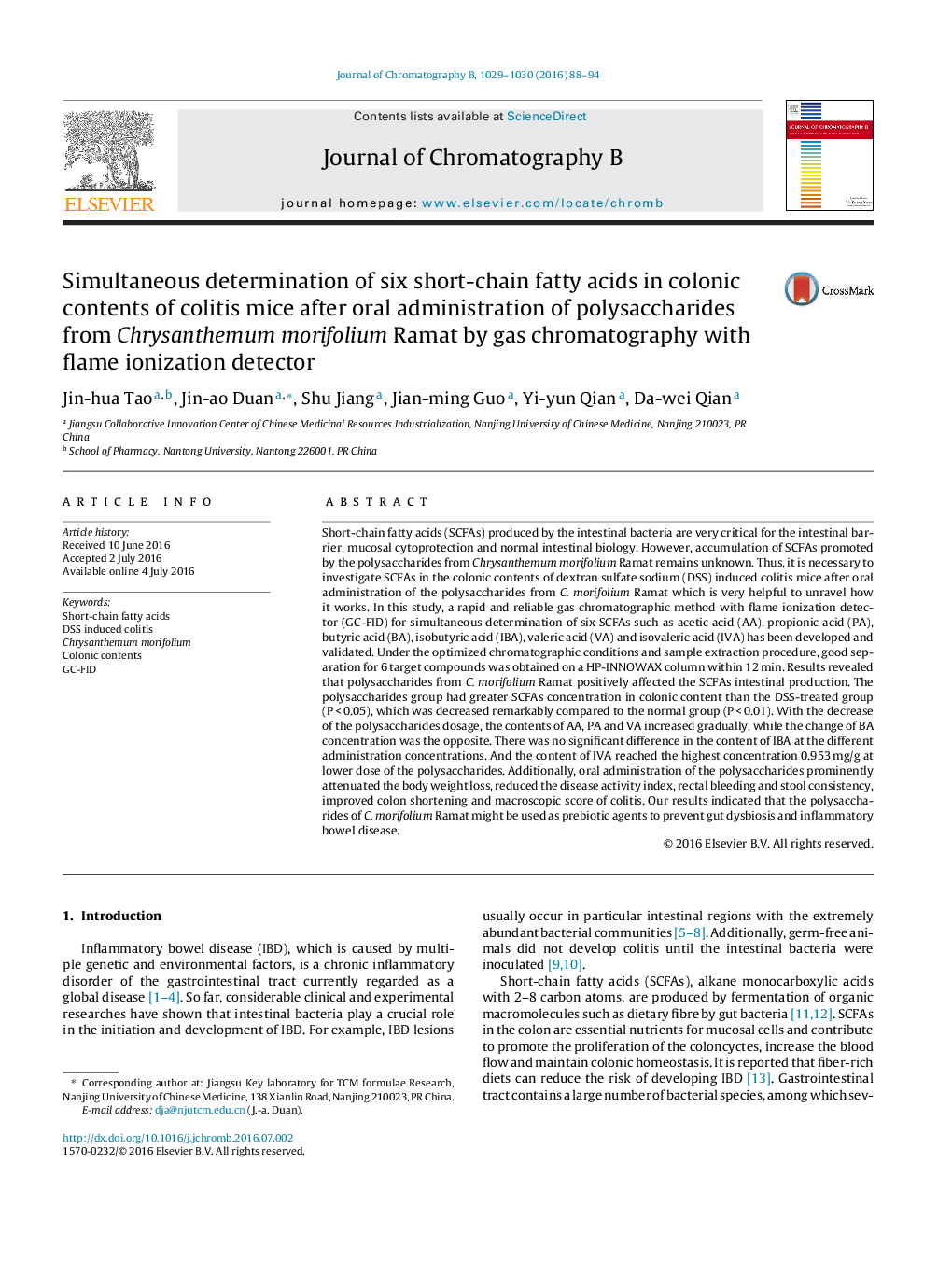| Article ID | Journal | Published Year | Pages | File Type |
|---|---|---|---|---|
| 1211810 | Journal of Chromatography B | 2016 | 7 Pages |
•GC-FID was developed for determination six SCFAs in colonic contents of colitis mice.•The pathophysiological changes of DSS induced colitis mice were investigated.•The Chrysanthemum polysaccharides could be used as prebiotic agents to prevent IBD.
Short-chain fatty acids (SCFAs) produced by the intestinal bacteria are very critical for the intestinal barrier, mucosal cytoprotection and normal intestinal biology. However, accumulation of SCFAs promoted by the polysaccharides from Chrysanthemum morifolium Ramat remains unknown. Thus, it is necessary to investigate SCFAs in the colonic contents of dextran sulfate sodium (DSS) induced colitis mice after oral administration of the polysaccharides from C. morifolium Ramat which is very helpful to unravel how it works. In this study, a rapid and reliable gas chromatographic method with flame ionization detector (GC-FID) for simultaneous determination of six SCFAs such as acetic acid (AA), propionic acid (PA), butyric acid (BA), isobutyric acid (IBA), valeric acid (VA) and isovaleric acid (IVA) has been developed and validated. Under the optimized chromatographic conditions and sample extraction procedure, good separation for 6 target compounds was obtained on a HP-INNOWAX column within 12 min. Results revealed that polysaccharides from C. morifolium Ramat positively affected the SCFAs intestinal production. The polysaccharides group had greater SCFAs concentration in colonic content than the DSS-treated group (P < 0.05), which was decreased remarkably compared to the normal group (P < 0.01). With the decrease of the polysaccharides dosage, the contents of AA, PA and VA increased gradually, while the change of BA concentration was the opposite. There was no significant difference in the content of IBA at the different administration concentrations. And the content of IVA reached the highest concentration 0.953 mg/g at lower dose of the polysaccharides. Additionally, oral administration of the polysaccharides prominently attenuated the body weight loss, reduced the disease activity index, rectal bleeding and stool consistency, improved colon shortening and macroscopic score of colitis. Our results indicated that the polysaccharides of C. morifolium Ramat might be used as prebiotic agents to prevent gut dysbiosis and inflammatory bowel disease.
